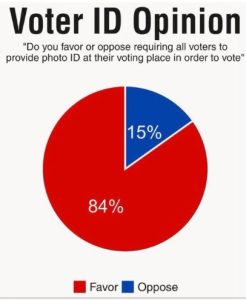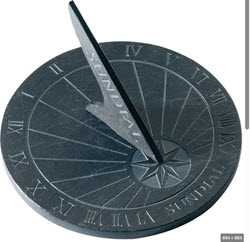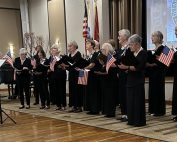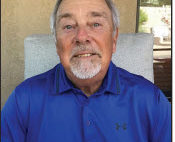Hobbs, Shope still at odds over campaign finance disclosures

REPRINTED FROM PINALCENTRAL.COM| By HOWARD FISCHER Capitol Media Services
MESA — Gov. Katie Hobbs said Thursday she “looking at proposals” to enact state law to ensure disclosure of when companies seeking government contracts give political gifts to her and future governors.
The move comes six months after she vetoed legislation crafted by Sen. T.J. Shope (LD-16 Pinal County) designed to do exactly that. SB 1612 would have required anyone submitting a bid to also disclose anything of value that the company and its officers or directors donated in the past five years to the governor or any of the governor’s funds, for elections or anything else.
The governor explaining her veto at the time, told Capitol Media Services the proposal by the Coolidge Republican is “a political stunt, nothing more.”
Shope told Capitol Media Services he still believes legislation is needed and is willing to work with Hobbs. But to date he said he has yet to hear from the governor.
Hobbs’ claim also comes as both Attorney General Kris Mayes and Maricopa County Attorney Rachel Mitchell have opened “pay to play” investigations into the decision in 2023 by the Department of Child Safety, headed by a gubernatorial appointee, to increase its payments to Sunshine to an amount that was nearly 40% higher than the average for other group homes.
Both investigations are ongoing. And Shope said Thursday he wants an update from both officials.
Despite her comments about Shope’s bill being a political stunt, Hobbs said Thursday that her decision to work on legislation for better financial disclosure is not a change of heart.
“I’ve always talked about more transparency,” she said. But the governor also insisted that what was in Shope’s bill is unnecessary.
“It didn’t do anything new that’s not already done,” Hobbs said. “All these contributions are already required to be disclosed.”
That’s not true.
State law does require candidates to list who has given donations to their political committees. But that is useless without some knowledge that those corporations or owners actually are pursuing government contracts and who are the officers.
More to the point, there is no legal requirement for candidates to list who is giving money to any separate “legal defense fund.” Nor are there any limits to the size of those donations.
Hobbs actually set up one of those in the midst of her legal battles with Republican Kari Lake over the outcome of the 2022 gubernatorial race.
The only reason that fund even became public is because Pinnacle West Capital Corp., the parent Arizona Public Service, was required by rules of the Arizona Corporation Commission to disclose it had donated $100,000. And a spokesman for her campaign refused to disclose who else has given — or even the total amount collected.
Legal defense funds aside, there also is nothing in state law requiring disclosure of money that governors collect for costs of inauguration, including parties. It was only after the governor’s campaign voluntarily gave Capitol Media Services a list of donors for the 2023 event that the $100,000 from Sunshine Residential was disclosed.
That turned out to be the second-largest donation to the fund, dwarfed only by $250,000 from Pinnacle West. And the Arizona Republic reported that Hobbs personally called Simon Kottoor, the CEO of Sunshine Residential, shortly after winning the 2022 election asking him to be a gold-level sponsor of the event.
Of particular note is that while Hobbs collected $1.5 million in total for the inaugural costs, the event actually cost just $207,000. That left her with a bunch of money she can spent on everything from gifts to visiting dignitaries to trying to flip control of the Arizona Legislature to Democrat.
Hobbs deflected questions Thursday about how she believes there already is transparency given the exceptions.
“But I can say we’re in support of transparency in government,” Hobbs continued. “And we’re going to put forward a package that does that.”
Nor would the governor say whether she believes that she — and other politicians — should be able to collect contributions without limits for a legal defense fund and then be able to shield the list of donors from the public.
“I’m not going to talk about details,” Hobbs said.
There is no evidence that the governor herself got involved in giving Sunshine Residential a special rate hike in how much it can charge the state for caring for foster children. That decision was made by David Lujan who at the time was the director of the Department of Child Safety.
“I did not even know these decisions were being made at the time that they were made,” Hobbs said.
But Lujan told the Arizona Republic that it was a difficult decision because of the political support of Hobbs by Sunshine Residential.
“It puts, I think, state agency directors, state employees in an uncomfortable position,” he said.
“I really tried to make the decision based on what was best for our agency and the children, but of course you’re going to get second-guessed when you have campaign contributions involved,” said Lujan who had formerly been a Democratic state lawmaker. “It’s going to raise suspicions.”
Sunshine had sought rate increases in early 2023. But these were denied by Matthew Stewart who had been the governor’s first nominee to head DCS.
Agency spokesman Darren DaRonco said the decision by Lujan to grant the increase in May 2023 came after Sushine said unless it got more money it would make more of its beds to the federal government which was looking for places for immigrant children. He said such a move — the feds were paying more than the state — would have meant fewer places for DCS to place its foster children.
And DaRonco said there was a particular needs for the beds, especially since Sunshine had 70% of the beds the agency wanted to place siblings together.
Hobbs, in Mesa Thursday for the 50th anniversary of the Apache helicopter which is produced there by Boeing, said she doesn’t believe that her taking large donations from corporations and their officers puts any state employee in an uncomfortable position when it comes to making decisions on state contracts.
“I have always put Arizonans first in every single decision I make,” she said. “I expect that from every state employee.”
Still, the governor acknowledged that her decisions to take large contributions could make some state employees who have to make these decisions uncomfortable.
“Certainly,” she said. “That is why we’re looking at a proposal for this next legislative session that will help to address even the perception of undue influence.”
Shope, for his part, said he is heartened by the fact that the governor now says she is interested in doing something to address the issue. And he’s willing to work with her office — if she wants.
“I will eagerly sit by my phone and await their call on what that something looks like to see if it’s workable,” he said. But Shope said, call or not, he already is working with legislative staff to come up with a financial disclosure bill that he believes Hobbs will sign.














Without being too political, I heard Karen Taylor Robson speak and she mentioned the 33 vetos Hobbs cast and her incredible misuse of funds. Not being easily impressed with politicians, I was duly impressed. This gal knows her stuff. If you get a chance, give her your attention. Worth it.